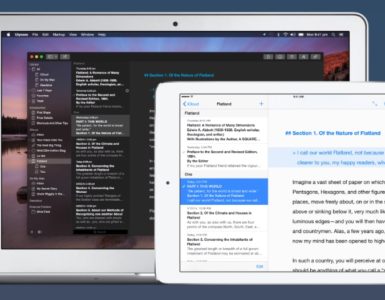 At some point, almost every writer considers self-publishing. And why not? These days, self-publishing options abound.
At some point, almost every writer considers self-publishing. And why not? These days, self-publishing options abound.
With print-on demand technology, single copies of books can be printed when ordered, eliminating the self-published author’s need to pay for several thousand copies up front. Not long ago, the folks at 37signals.com decided to bypass traditional publishers entirely, choosing instead to publish their latest book exclusively as a downloadable file — and sold $1,750 copies in 24 hours at $19.00 a pop.
Since Amazon.com will sell any book with an ISBN number slapped on it, self-published authors can now sell books to anyone with an internet connection. And with the arrival of the Kindle, anyone can upload anything they’ve written — from their graduate thesis on “The Economics of Cat Litter Clay Harvesting” to their latest novel — for free, and make it available to however many people out there are carrying Kindles around. (I’m one of em.)
So: is self-publishing right for you? Here are nine questions you should answer before hitching a ride on the self-publishing bandwagon.
1. Are you famous? Let’s face it: if she wanted to, Madonna could write an eBook, offer it for download, and make a ton of money in minutes. But let’s face it: no matter how much time you spend lip-synching “Vogue” in front of the bathroom mirror, you’re just not Madonna.
At this point, you might say, “But the folks at 37signals.com aren’t Madonna, either, and they sold 2,000 books in one day!”
And you’d be right — they’re not Madonna … they’re technology gurus. But, to be fair about it, they are the Madonnas of the whole “Web 2.0” movement. In their niche market, they have a reputation. They’re respected and admired and well-known … so, when they offer a self-published e-book for sale, they have a built-in audience already clamoring to buy it.
If you’re famous — or even just very well-known and respected within a niche market — self-publishing might well be a great strategy for you.
2. Are you rich? Self-publishing can be very, very expensive. Self-published authors often pay $10,000 dollars or more for a few hundred copies of their books. Even print-on-demand companies — which don’t print any copies until they’re bought and paid for — charge “type-setting, design, and prep fees” (usually around a thousand dollars) before they’ll make your book available. That money comes out of your pocket, right up front.
Does your book need editing? (Every single self-published book I’ve ever seen would have benefited from editorial guidance … and even solid proofreading!) Then you’ll have to buy editorial services. Do want your book promoted and marketed aggressively? That money will come out of your pocket, too.
You can get around some of these expenses by publishing e-books: electronic, downloadable files. Problem is, not many people (except, perhaps, the tech and geek community — the target market for that 37signals.com book) are reading books at their computers … so the appeal of an e-book can be extremely limited.
Update: The arrival of a practical technology for reading ebooks — the Amazon Kindle — is changing this, as the Kindle makes it easy for anyone to publish a book (at zero expense) and sell it directly to readers (and get a whopping 35% of the cover price) who can read it comfortably on their Kindles.
3. Can your ego handle being completely ignored by the media? When I approach television producers and newspaper reporters with story ideas related to my commercially published books, their first question is always: “Is this book self-published?”
Guess what? If the answer to that question is “Yes,” they’ll hang up the phone. The cruel truth is that self-published books just aren’t considered newsworthy.
The only way a self-published book makes the news is by selling so many copies it gets picked up by a commercial publishing house. Otherwise, prepare for the media to completely and thoroughly ignore your work. (And to do all the marketing and publicity for it yourself, on your own dime.)
4. Is your book really just a brochure for your business? If so, then, by all means, consider self-publishing.
Let’s face it: in American society, simply being able to say, “I wrote a book” gives a person a certain level of authority (even if the book was total crap). If you’re looking to establish credentials quickly, self-publishing will allow you to cobble together a few dusty old presentations and speech notes and produce a book in no time. When you manage to snag a few speaking engagements, you can hawk your book and add a few bucks to your take for the day.
E-books, because they’re so cheap to produce, make great “free gifts” to people who are curious about what your services. Slap a $35.00 sticker on the e-book, and you can say, “Sign up for my newsletter now, and I’ll give you my latest e-book, How to Talk to Your Hamster — a thirty-five dollar value — absolutely free!”
If your book is really nothing more than a marketing or publicity tool, self-publishing is likely your only option.
5. Do you want your book to appear on bookstore shelves? Perhaps you are entertaining visions of driving cross-country on Route 66, selling books out of the trunk of your car to eager bookstore owners, all of whom are only too happy to help a struggling author make a buck or two.
My friend, those days are over. The chains have come to crush the independent booksellers, and the chains ain’t buying and stocking nothing they can’t get through their wholesale distributors. Your local Books-a-Million manager is approached by about a dozen authors a month who want their books on the “Local Authors” shelves; company policy demands that he turn them all away.
If you can find an independent store, you might be able to convince the owner to sell your books — but he or she is already having to pinch pennies until they scream just to stay in business … so expect your books to be taken on consignment. You’ll make no up-front money, and you’ll make no money at all unless and until someone buys a copy.
6. Do you want to be traditionally published someday? Unless it was a runaway success story that broke all the rules and sold millions of copies and catapulted you to instant fame, a previously self-published book will likely work against your desire to be traditionally or commercially published.
It’s cruel and hurtful, but true: in the eyes of many commercial publishers (and the press), self-publishing a book will taint you. When you say, “My first book was self-published,” they’ll hear, “My first book wasn’t well-defined, well thought-out, well-edited, and well-written enough to be traditionally published.”
Saying this out loud gets me a lot of hate mail from authors who self-published their first book. “How dare you tell people that! Lots of people self-published their first book and went on to be ridiculously famous. Look at The Celestine Prophecy!”
I respond by asking them to name ten such authors. I mean, if there are lots of them, you should be able to name ten off the top of your head, right?
Right?
7. Are you writing for a tiny little niche market? If you’re writing for a tiny little niche market, self-publishing may be a great solution for you, especially if you have a reputation within your particular tiny little niche market.
Let’s say you’ve written a book called “36 Ways to Improve Attendance at Your Primitive Baptist Church.” Frankly? A commercial publisher won’t touch it. There just aren’t that many Primitive Baptist Churches out there.
So what do you do? Especially if you have a reputation among Primitive Baptists — if you’re a popular Primitive Baptist minister, say, or a life-long member who is much beloved — you do this: you run to Kinko’s, you have them print and spiral-bind your book, and then you sell it directly to ministers and members at Primitive Baptist churches nationwide.
If you’re writing for a tiny niche market, have an established reputation and credentials within that market, and have an easy way to get your product in front of people who are part of that niche community, your book really should be self-published.
8. Do you want to make more money on each book you sell, and get your money right away? (Well, who doesn’t?) If so, self-publishing is your only option.
Here’s a little-discussed fact about the commercial publishing industry: authors typically earn between four and six percent on the wholesale price of every book actually sold. If your book’s retail price is, say, $19.95, the wholesale price will be about ten bucks. When Sally Jane buys a copy down at her local Borders Books, you’ll earn between forty and sixty cents.
If you got an advance for your book (you did, didn’t you?), your book will have to “earn out its advance” before you see a single royalty check — and, frankly, publishers have a pretty broad array of tricks to make sure books don’t look profitable, even if they are — so don’t expect to get fat off future payments that come your way.
But let’s say you self-publish a book. Let’s say you do a pretty sloppy job of it, going the Kinko’s spiral-bound route. Let’s say you sell your book through Amazon.com and your own website specifically designed to appeal to your niche market readers.
If you spent $500.00 printing 100 copies at $5.00 each, you could sell your book for, say, $15.00 per copy. If you sell all 100 copies (and that’s a pretty darn big if), you’ll make $1500 dollars — a profit of $1000.00! Frankly, that’s more than you’d be likely to see from the same book, even if you did get a commercial publisher to crank it out.
If you sell the same book as an e-book, you’ll avoid printing costs entirely. You can sell the book as a downloadable PDF file or a Kindle book. You can get your money right away, and have no printing costs to recover.
Every cent you’ll make is gravy.
9. Why do you want to be published, anyway? This is probably the most important question on this list.
Do you want to see your name on the front of a book? Do you want to see your book in stores? Do you want to get rich? Do you just want to “Be An Author”? Really, think about it. Why do you want to be published?
If your goals include having a long career as a writer, being interviewed by the media, getting the respect of other writers and publishers, and seeing your books on bookstore shelves, self-publishing is more likely to hurt than help you. It’s sad, but true.
But … if you just want your name on a book … if you can be happy selling a few copies to friends and family … if you’re an established expert in a niche market … or if you are looking for a low-cost, high-profit item to add to your line of products … self-publishing may well be exactly what you need.



Add comment